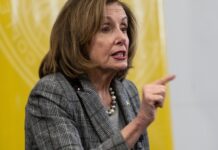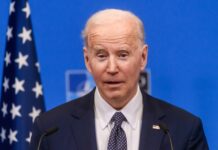
The potential overturning of Chevron deference, a judicial doctrine established by the 1984 Supreme Court case Chevron U.S.A., Inc. v. Natural Resources Defense Council, could significantly reshape the landscape of federal economic regulations. This doctrine has long allowed federal agencies to interpret ambiguous statutes, provided their interpretations are reasonable. However, recent Supreme Court deliberations suggest that Chevron's days might be numbered, leading to profound consequences for regulatory practices and economic policies.
Chevron deference has faced mounting criticism, particularly from conservative justices and legal scholars who argue that it grants excessive power to federal agencies at the expense of the judiciary's role in interpreting the law. Justice Neil Gorsuch has been particularly vocal, describing Chevron as allowing "executive bureaucracies to swallow huge amounts of core judicial and legislative power," thus centralizing federal authority in a manner that conflicts with the constitutional separation of powers.
What’s the most-important thing no one is thinking about?
The Chevron Deference may get thrown out.
Interesting timing.
(Link w/o paywall in comments) pic.twitter.com/eFPyMF8Wj6
— 🤠Weimar Silver Baron🤠 (@BankerWeimar) June 5, 2024
If the Supreme Court decides to discard or significantly limit Chevron deference, the regulatory environment would undergo substantial changes. The Court may adopt one of three potential approaches:
The potential demise of Chevron deference would introduce significant uncertainty for regulated industries. Federal agencies such as the Environmental Protection Agency (EPA) and the National Marine Fisheries Service (NMFS), which rely on Chevron to implement complex regulations, would face heightened scrutiny and challenges in court. This shift could slow the regulatory process and increase compliance costs for businesses as courts re-interpret regulatory statutes.
.@Steve ForbesCEO explains how pending Supreme Court decisions relating to Chevron Deference could lead to the victory, or begin to push back on, of the tyrannical socialism imperiling the nation. #WhatsAhead pic.twitter.com/J2YZCWpEaY
— Forbes (@Forbes) May 2, 2024
For instance, the ongoing case involving commercial fishing regulations, which required vessel operators to bear the cost of compliance, illustrates how Chevron deference supports agency decisions on complex regulatory matters. Without Chevron, these decisions would be more vulnerable to legal challenges, potentially leading to inconsistent regulatory interpretations and greater legal uncertainty.
Overturning Chevron would also affect how courts interact with federal agencies, potentially leading to a more adversarial relationship. Agencies might need to be more transparent and precise in their rulemaking to withstand judicial scrutiny, thereby altering how economic policies are developed and enforced.
In summary, the potential overturning of Chevron deference by the Supreme Court could lead to significant changes in the regulatory landscape, affecting federal agencies' ability to implement and enforce economic regulations. This shift would likely result in increased litigation and uncertainty, impacting businesses and the broader economy.











